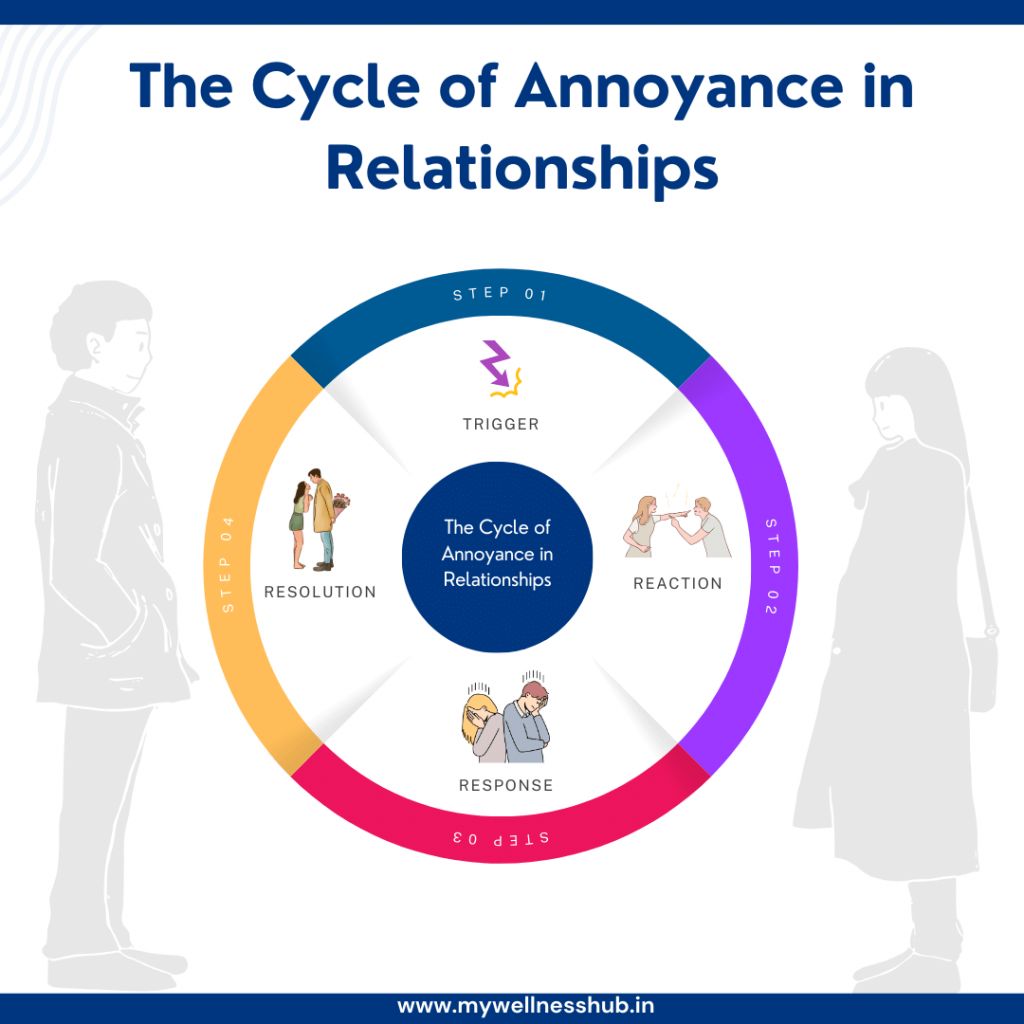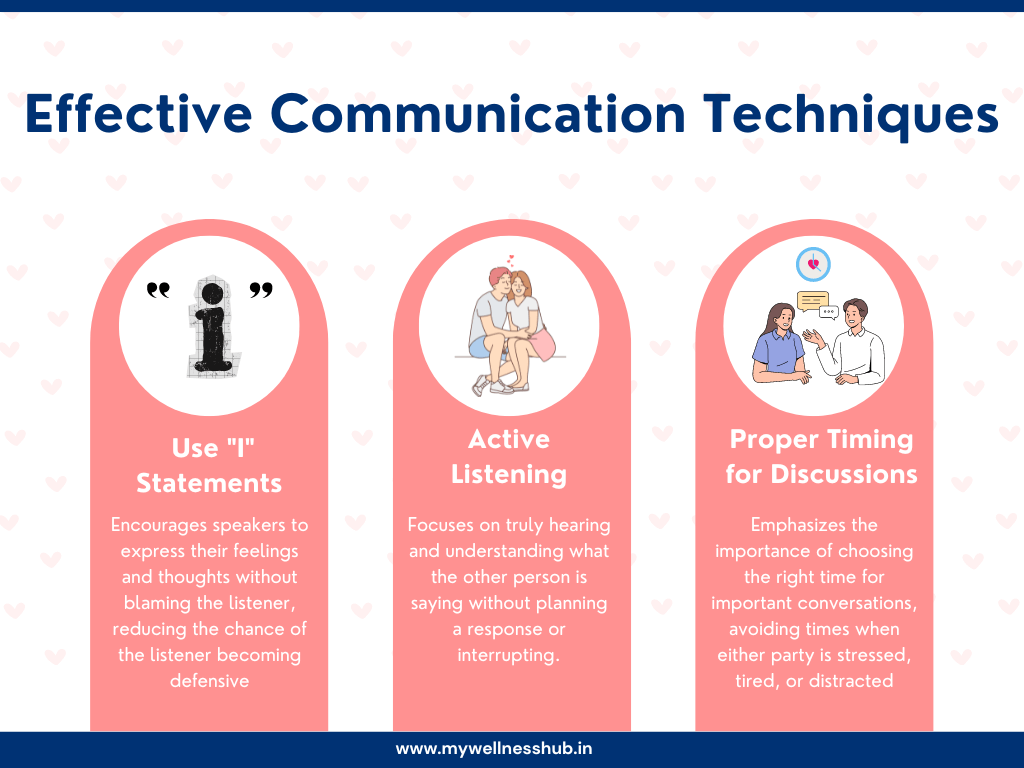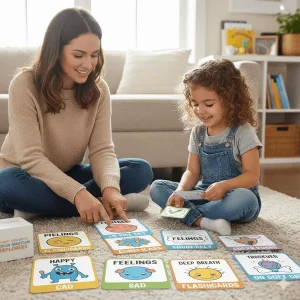5 Practical Tips for When Your Partner Annoys You
By Prapoorna M
Last Updated: July 31, 2024
Have you ever found yourself frustrated by something your partner did or said? You’re not alone. Feeling annoyed with your significant other from time to time is a common experience for many couples. However, it’s not just about the fleeting moments of irritation; it’s how we handle these feelings that can either strengthen or weaken our relationships.
Addressing annoyances constructively is crucial for maintaining a healthy, loving relationship. Ignoring these feelings or letting them build up can lead to bigger conflicts, but with the right approach, you can turn these irritations into opportunities for growth and deeper understanding. In this article, we’ll explore five practical tips that can help you deal with an annoying partner effectively, ensuring that your relationship not only survives but thrives.

Understand and Address the Root Causes
Understanding the root causes behind the irritation you feel towards your partner can be a game-changer in how you manage relationship dynamics. It’s easy to react to what bothers us on the surface, but taking a moment to dig deeper can reveal what’s truly at play, which is often more complex than it initially seems.
Identify the Real Issue
Sometimes, what annoys us about our partner is not so much their actions but how we’re feeling overall. Are you really upset about the dishes left in the sink, or are you perhaps stressed about work and using those dishes as an outlet for your frustration? By becoming more self-aware and reflecting on what’s really bothering you, you can address the actual problem rather than misplacing blame.
Use Self-Awareness Techniques
Practicing mindfulness can be a powerful tool for understanding your emotions. When irritation arises, take a moment to pause and reflect. Ask yourself: What is really triggering my reaction? Is it the action itself, or is it related to something else happening in my life? This reflection can help differentiate between genuine issues with your partner’s behavior and external stressors influencing your mood.
Consider External Factors
Our reactions are often influenced by a mix of personal stressors and external pressures. Lack of sleep, work-related stress, or other personal challenges can amplify our reactions to minor annoyances. Acknowledging these factors can provide a clearer perspective and help mitigate unfair reactions towards your partner.
Practice Communication and Timing
Effective communication is often the cornerstone of any thriving relationship, especially when it comes to navigating the rough waters of annoyance and irritation with your partner. Knowing how to express your feelings and choosing the right moment can significantly influence the outcome of your discussions.

Timing is Everything
It’s essential to discuss your feelings when both you and your partner are calm and not in the midst of a heated argument. Waiting until you’ve both cooled down ensures that you can listen to each other without emotions running high, which often leads to more productive and understanding conversations.
Use “I” Statements
When you do decide to talk about what’s bothering you, framing your feelings with “I” statements can be a powerful way to avoid blaming or criticizing your partner directly. For example, saying “I feel frustrated when the laundry is left unfinished” centers the conversation around your feelings and invites your partner to understand your perspective without feeling attacked.
Set a Good Time to Talk
Agreeing on a specific time to discuss issues can help both partners prepare mentally and emotionally for the conversation. This approach respects each other’s space and ensures that both parties are ready to engage constructively. It’s like setting a meeting in the business world — it prepares both sides to bring their best selves to the discussion.
Also Read: Better ways to communicate in relationships
Foster Personal and Mutual Growth
In any relationship, personal growth and mutual development are key to not only individual happiness but also to the health of the relationship. When facing annoyances with your partner, turning the focus inward and on shared growth can transform challenges into opportunities for strengthening your bond.
Focus on Self-Improvement
It’s easy to fall into the trap of thinking if only your partner would change, everything would be better. However, the only behavior you can control is your own. By focusing on your personal growth, you not only improve your well-being but also set a positive example for your partner. Reflect on aspects like patience, understanding, and empathy. Working on these can make you more equipped to handle relationship irritations constructively.
Engage in Shared Activities
Shared goals and hobbies can greatly enhance your relationship. They not only provide fun and a break from the routine but also build a deeper sense of unity. Consider activities that both of you are interested in or have always wanted to try. Whether it’s taking a cooking class together, joining a dance club, or setting fitness goals, shared activities create shared experiences, which can help smooth over many of the rough edges that cause irritation.
Set Common Goals
Goal setting is not just for individual aspirations. Setting goals together as a couple can direct both of you to work towards common objectives, making the relationship stronger and more focused. These could be anything from financial goals, like saving for a vacation, to lifestyle goals, like eating healthier or organizing your home. Achieving these goals together can also bring a sense of accomplishment and joy that overshadows petty annoyances.
Know more about The best hobbies for couples in a relationship
Choose Your Battles Wisely
Navigating relationship dynamics effectively often means knowing when to address issues and when it might be best to let them slide. Choosing your battles wisely is not about ignoring problems; it’s about knowing what truly matters for the health and happiness of your relationship.
Assess the Significance of Issues
Before you bring up an issue that’s bothering you, take a moment to assess its real impact on your relationship. Ask yourself: Is this a recurring problem that affects our mutual respect and love, or is it a one-time annoyance that I can overlook? If it’s something that continually disrupts your peace or undermines your feelings for each other, it’s likely worth addressing. However, if it’s a minor irritation, it may be more beneficial to let it go.
Letting Go of Minor Annoyances
Focusing on minor annoyances can distract from the more important aspects of your relationship, like support, love, and mutual growth. Learning to let go of small irritations involves acknowledging them but choosing not to let them dominate your emotions or interactions. This might mean taking a deep breath when something bothers you and deciding not to let it affect your mood or your view of your partner.
Strategies for Letting Go
- Practice Gratitude: Remind yourself of your partner’s qualities and the good aspects of your relationship. This can help put minor annoyances into perspective.
- Set Priorities: Understand what’s non-negotiable for you and what you can be flexible about. This clarity will help you decide what battles need fighting.
- Communicate Openly: If you decide an issue is important enough to discuss, approach it constructively. Explain why it matters to you without making your partner feel attacked.
Comparing Minor vs. Major Relationship Annoyances
| Type of Annoyance | Examples | Potential Impact | Suggested Action |
|---|---|---|---|
| Minor | Dishes left out | Short-term irritation | Let it go |
| Minor | Not replacing toilet roll | Brief annoyance, no lasting harm | Let it go |
| Minor | Leaving lights on | Minor inconvenience, easily fixed | Let it go |
| Major | Financial irresponsibility | Long-term consequences, stress | Have a discussion |
| Major | Dishonesty | Trust issues, relationship damage | Have a discussion |
| Major | Lack of support during hardships | Affects emotional connection | Have a discussion |
Read more about on our article 10 Reasons you should have a Partner | Advantages of a relationship
Reinforce Your Partnership
At the heart of any lasting relationship is the foundational understanding that you and your partner are a team, not adversaries. This perspective is essential not only during smooth phases but especially when navigating the bumps and annoyances that are inevitable in any partnership.
Reinforcing Your Team Spirit
Remember, every interaction with your partner offers an opportunity to strengthen your bond, even during disagreements. Viewing each other as teammates rather than opponents can transform challenges into moments of collaboration and support. Reinforcing this mindset can dramatically improve how you handle day-to-day interactions, making your relationship more resilient against the strains of everyday life.
Implement Regular Relationship Check-Ins
Just like any team, a successful partnership benefits from regular check-ins to ensure both members are happy, feel supported, and are moving towards common goals. These check-ins can be informal, like a chat over coffee on a Sunday morning, or more structured, like a monthly sit-down to discuss relationship goals and feelings. This habit helps prevent small annoyances from festering into bigger issues and ensures both partners feel valued and heard.
Engage in Shared Activities to Strengthen Bonds
Participating in activities together, whether it’s a shared hobby, a regular date night, or a joint fitness challenge, can reinforce your bond. These shared experiences create fond memories and can serve as a reminder of your partnership’s strengths, especially during times when you might feel annoyed or irritated with each other.
Cultivate a Supportive Environment
Encourage and support each other’s individual interests as well. This shows that you value your partner’s happiness and success as much as your own, which is a powerful way to strengthen your relationship. Whether it’s cheering for them at a sports event or supporting their artistic pursuits, showing interest in their life outside of the relationship is crucial.
Also Read: Marriage Counselling: When should you consider it? Everything you need to know
Conclusion
In conclusion, managing annoyances in a relationship is about small, thoughtful actions rather than big changes. It’s important to understand the reasons behind irritations, communicate clearly and calmly, focus on growing together, choose your battles wisely, and remember that you’re a team. By handling these feelings together, you can turn potential conflicts into chances to strengthen your bond.
For more tips on keeping your relationship healthy, Wellness Hub is here to help. We offer resources and expert advice to guide you through the ups and downs of relationships. Visit us to learn how to make your partnership stronger and happier.
Frequently Asked Questions:
1. How do you handle feeling annoyed with your partner?
Dealing with annoyance in a relationship involves understanding the root causes, communicating effectively when calm, focusing on personal growth, choosing your battles wisely, and reinforcing the partnership. It’s crucial to approach each situation with empathy and cooperation.
2. What are the best ways to communicate with my partner when I’m annoyed?
The best way to communicate when annoyed is to use “I” statements, discuss your feelings during a calm moment, and ensure both partners are ready to listen. This approach helps prevent the conversation from becoming a blame game and instead focuses on constructive resolution.
3. Why is it important to choose your battles in a relationship?
Choosing your battles is important because it helps you focus on issues that truly matter to the relationship’s health, rather than getting caught up in every minor annoyance. This strategy prevents unnecessary conflicts and preserves the quality of your interactions.
4. How can regular relationship check-ins help manage annoyances?
Regular relationship check-ins provide an opportunity to discuss and resolve issues before they escalate. These check-ins can foster openness, ensure ongoing support, and reinforce the understanding that both partners are working towards the same goals.
5. What should I do if my efforts to manage annoyances are not working?
If your efforts to manage relationship annoyances are not effective, it may be helpful to seek advice from relationship experts or consider counseling. Professional guidance can provide new perspectives and strategies to improve your relationship dynamics.
6. How can I tell if an annoyance is a minor issue or something more serious?
To determine if an annoyance is minor or serious, consider how frequently it occurs and the impact it has on your relationship. If it affects trust, respect, or communication in a significant way, it may be a deeper issue that needs addressing.
7. What are some effective self-awareness techniques to reduce irritations in a relationship?
Effective self-awareness techniques include mindfulness meditation, journaling your feelings, and reflecting on the situations that trigger your irritations. These practices help you understand your emotions and reactions better, allowing for more thoughtful responses in your relationship.
8. Can hobbies really help improve a relationship?
Yes, shared hobbies can significantly improve a relationship by providing common ground, enhancing communication, and creating joyful shared experiences. They help couples build stronger bonds and reduce stress and irritations by focusing on enjoyable activities together.
9. What are the benefits of using “I” statements in relationship communications?
Using “I” statements helps express your feelings without blaming your partner, which can reduce defensiveness and open the way for more empathetic conversations. It focuses on your experiences and emotions, encouraging a supportive dialogue rather than conflict.
10. How often should couples have relationship check-ins?
The frequency of relationship check-ins can vary based on the couple’s needs, but generally, having a check-in once a month or whenever a specific issue arises can be beneficial. Regular check-ins ensure ongoing communication and can prevent minor annoyances from turning into major issues.
About the Author:
Prapoorna Mangalampalli
M.Sc., M.A., (Dual Masters in Psychology & English) – Counselor (6+ years of experience)
Prapoorna armed with a passionate dedication fueled by dual Master’s degrees in Psychology and English, Prapoorna sheds light on and elevates human experiences. Over 6+ years of experience fuel her insightful approach to counseling, offering profound empathy and guidance across diverse areas like online, marital, relationship, child, family, and career counseling.
At Wellness Hub, she thrives in a team environment that values innovation, compassion, and achieving results for their clients.
Connect with Prapoorna to learn how she can help you or your loved one find their voice and build a brighter future.
Book your Free Consultation Today
Parent/Caregiver Info:
Client’s Details:
* Error Message









